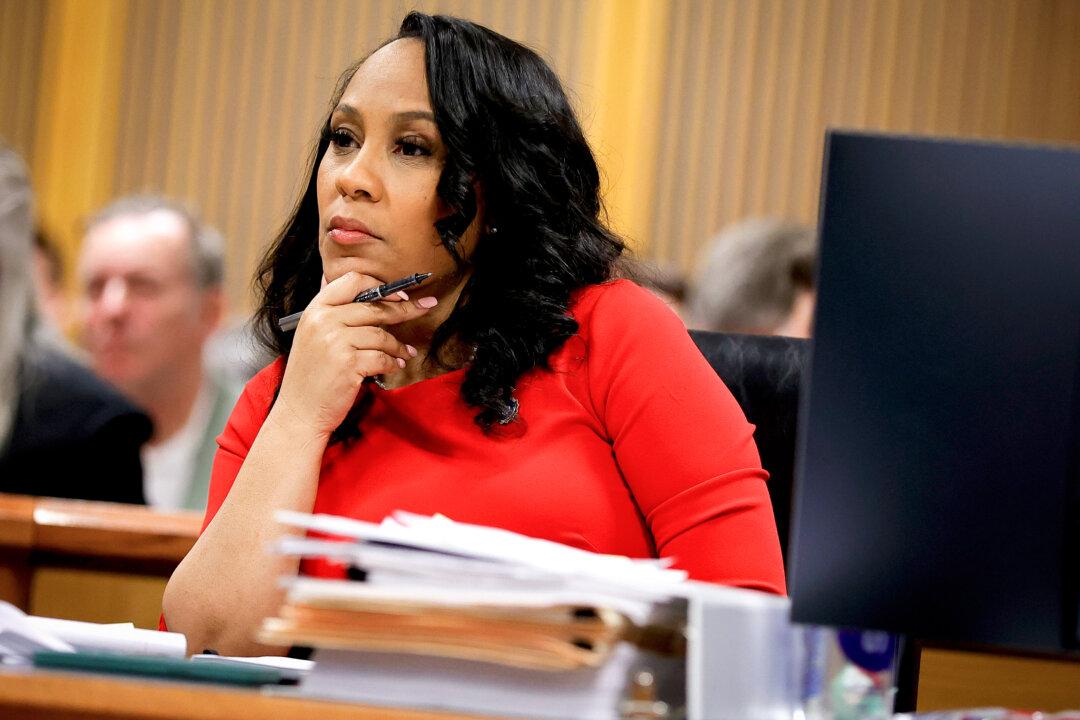Former President Donald Trump and several codefendants appealed Fulton County Superior Court Judge Scott McAfee’s decision to not disqualify Fulton County District Attorney Fani Willis in the Georgia Court of Appeals on March 29.
Ms. Willis is prosecuting President Trump and 14 others in a high-profile racketeering case that charges them with participating in a criminal conspiracy to challenge the results of the 2020 election.





